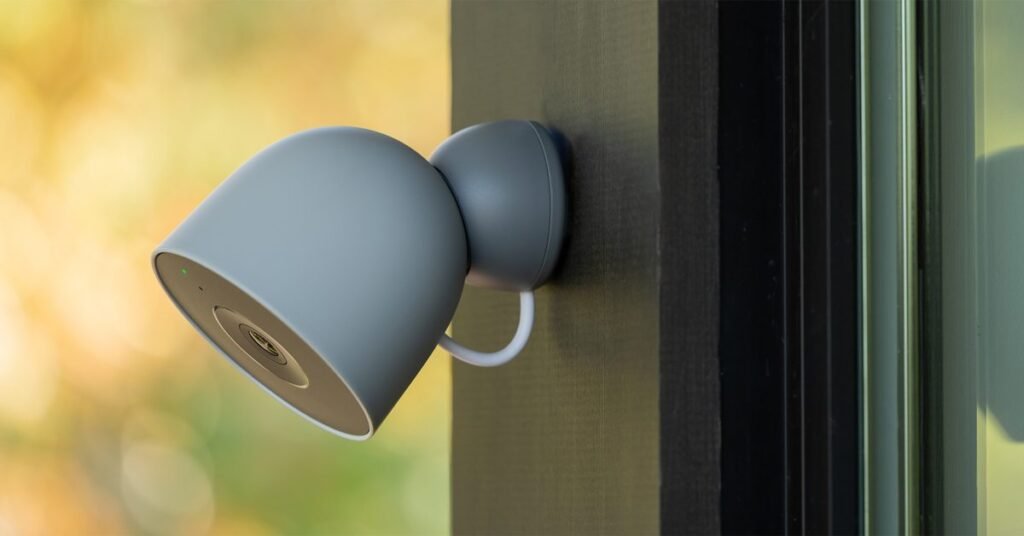New Wired Nest Cam Lineup Introduced
Reasons Behind Absence of Battery-Powered Models
Google’s AI Initiative and Its Impact on Camera Upgrades
Google has recently unveiled its latest lineup of Nest Cam devices, but notably absent are any battery-powered models featuring a 2K upgrade. The company has provided clarity on this decision.
The new offerings include wired versions of the Nest Cam Indoor, Nest Cam Outdoor, and a Nest Doorbell, marking a significant departure from the previous refresh in 2021, which introduced battery-powered options alongside a single wired indoor camera.
The key enhancement in this lineup is the introduction of 2K recording capabilities. These cameras promise higher resolution video and better clarity compared to earlier models, making them well-suited for enhanced monitoring and security applications. Consumers can expect clearer images and video, which can be crucial for identifying faces or other details in recorded footage.
However, the lack of a battery-powered model upgrade raises questions about Google’s strategy. Battery-powered models have gained popularity in the smart home market due to their flexibility and ease of installation. Homeowners often prefer the option to place cameras in locations where wiring may not be feasible. Google’s decision to focus solely on wired devices for this refresh has led to mixed reactions among consumers.
According to Google, the primary reason for not updating the battery models is related to its new AI initiative, Gemini. This initiative aims to integrate advanced artificial intelligence features into Google’s smart home products, enabling them to learn from the environment and user behavior. Wired cameras are better suited for these advanced features, as they can continuously record and analyze footage, unlike battery-powered models that are designed to operate intermittently. This continuous operation allows for more sophisticated processing and could lead to improved functionality, such as enhanced motion detection and smarter alerts.
In a statement from the company, they emphasized that the wired cameras are equipped to handle the demanding requirements of the Gemini system, which can analyze data in real-time. This could potentially offer users smarter insights, like distinguishing between a person and an object or recognizing familiar faces. As AI technology continues to evolve, Google appears to be positioning its wired devices to take advantage of these advancements fully.
While Google has not ruled out future updates for battery-powered Nest cameras, it remains uncertain when such models will be released. The company emphasized that this latest refresh does not signify the end of its smart home hardware development. Instead, it represents a strategic shift to prioritize performance and reliability through wired connections, which are often more stable compared to battery-operated devices.
For consumers, the new wired Nest devices start at $99 and promise enhanced video quality and functionality. The Nest Cam Indoor and Outdoor models are expected to cater to different security needs. For example, the Nest Cam Indoor might suit those looking for enhanced security monitoring within their homes, while the Outdoor version would cater to users wanting to keep an eye on their property from outside.
Additionally, the new Nest Doorbell is designed to replace its predecessor, offering not just video monitoring but also features like two-way audio, allowing homeowners to communicate with visitors remotely. The inclusion of these features highlights Google’s initiative to provide comprehensive security solutions that integrate seamlessly into users’ smart home ecosystems.
As Google continues to evolve its smart home ecosystem, further innovations may be on the horizon. The company has a proven track record of expanding its product lines and integrating new technologies. Therefore, although the current focus is on wired models, future iterations may bring additional upgrades to battery-powered versions, especially as consumer demands and market trends shift.
Ultimately, consumers will eagerly await what the future holds for Nest security cameras, particularly regarding the integration of AI technology and potential enhancements to the existing battery-powered options. As the market for smart home devices continues to grow and evolve, Google’s efforts to lead in this space will be closely monitored by both industry experts and everyday users alike.



